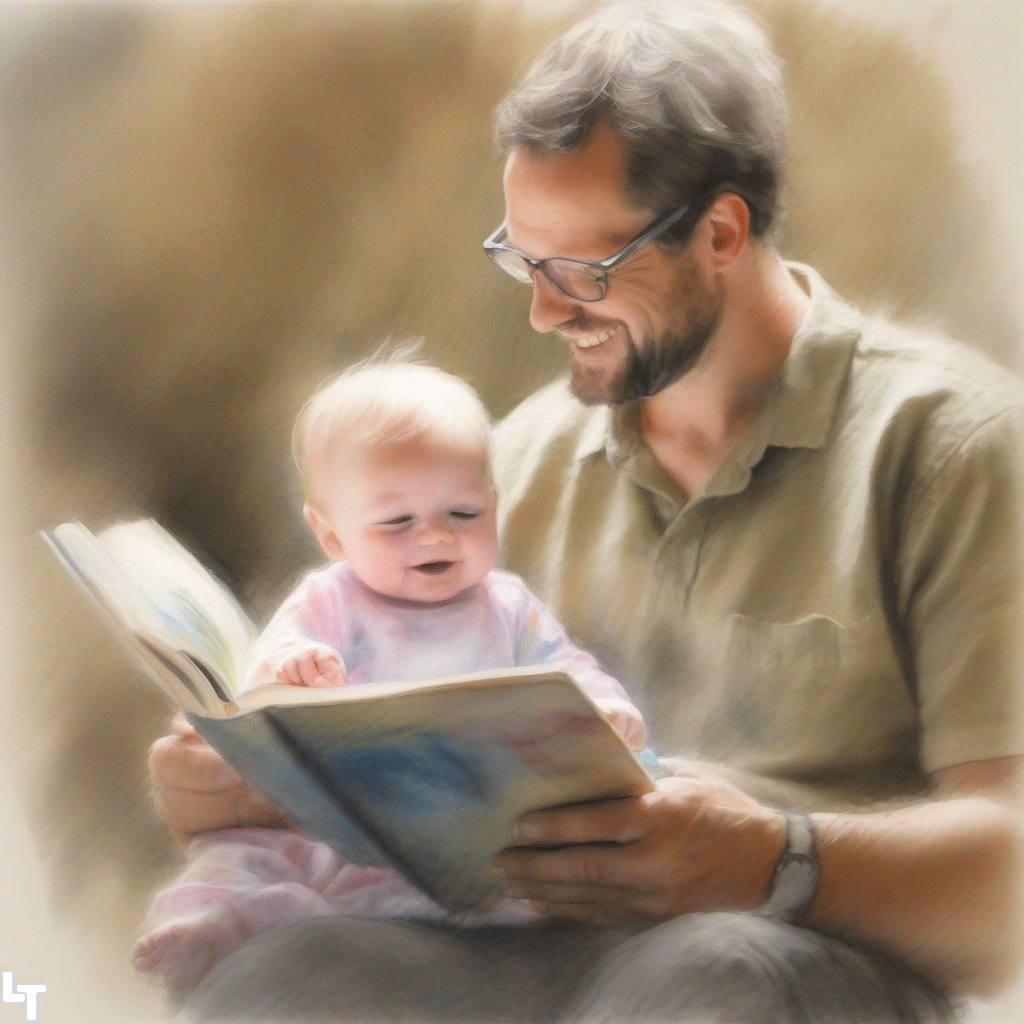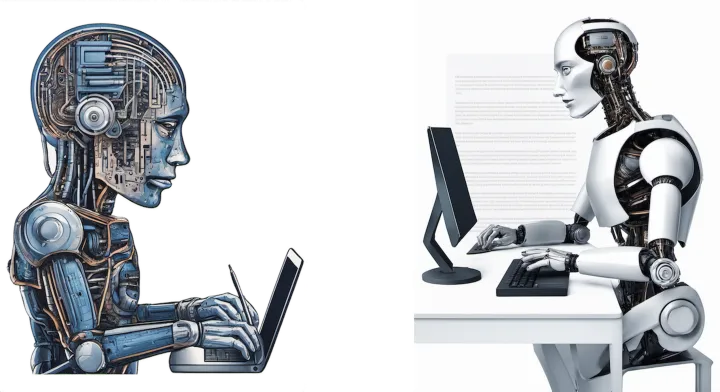Charting the Course of Growth from Birth to 12 Months
The first year of a baby's life is crucial for growth. Smiling, making sounds, crawling, walking, and babbling shape language, motor skills, and social development.

The Journey of Growth: Developmental Milestones from Birth to 12 Months
Every child's journey, from their first breath as a newborn to those wobbly first steps, is an extraordinary adventure. It's a time of boundless growth, endless exploration, and pure, unfiltered joy. As parents, we are privileged to witness the unfolding of each developmental milestone during this transformative year. From that first toothy grin to those curious little fingers reaching out to touch the world, every moment is a testament to their incredible journey of growth and discovery. This article serves as a guiding light, illuminating the path and offering a deeper understanding as you lovingly accompany your precious little one through the breathtakingly beautiful and awe-inspiring journey of their first year of life.
Key Takeaways:
- Understand the key developmental milestones from birth to 12 months.
- Learn how to support your child's growth and development during their first year.
- Recognize the signs of healthy development.

Once Upon A Time...
Once upon a time, in a cozy little crib, I opened my eyes and took in my first view of this big, beautiful world. Everything was new and exciting, and I couldn't wait to explore. As the days passed, I started noticing the high-contrast patterns and faces around me, and they captivated my attention. I would startle at loud sounds, but it was all part of my journey of growth.
In those early weeks, I discovered the amazing reflexes I had, like sucking and grasping. These reflexes helped me survive and grow stronger. But what really made my heart soar was when I saw my mommy and daddy's smiling faces. Their smiles made me smile too, and I knew that I was becoming a little social butterfly.
As I grew a little older, I began making delightful sounds. I cooed and gurgled, trying to communicate with the people around me. I would follow objects with my eyes and hold my head up when I was on my tummy. It was my way of preparing for the exciting adventures that lay ahead.
One day, I discovered a new way to move - crawling! It was like magic as I explored the world around me, understanding how things fit together and cause and effect. I started to understand that my actions could make things happen. Crawling was my ticket to independence, and I loved every moment of it.
With each passing month, I grew more curious about my surroundings. I reached for objects and explored them with my hands and mouth. Rolling over from my tummy to my back and vice versa became easier, and I loved expressing my joy and displeasure vocally. I recognized familiar faces and felt safe with my loved ones. They taught me so much about the world.
Sitting up without support was a big achievement for me. It gave me a whole new perspective on life. I could interact even more actively with my environment, and I started to understand that things still existed even when I couldn't see them. It was like a whole new level of understanding.
As my first birthday approached, I became even more mobile. I crawled faster and took my first wobbly steps. It was challenging, but I was determined to master this new skill. My fine motor skills improved too, and I could pick up small objects with my pincer grasp. I even imitated gestures and said a few words like "mama" and "dada." My journey of growth had been incredible, and I couldn't wait to see what the future held for me.
And so, my dear friends, that's the story of my first year of life. It was a journey filled with wonder, discovery, and love. Each milestone I reached brought me closer to understanding the world and forming connections with the people around me. As I continue to grow, I know that every step I take is a step towards a future filled with endless possibilities.
The Beginning.

The First Month: Awakening to a New World
During the first month of life, newborns are acclimating to the world beyond the womb. Their visual abilities are still in the early stages of development, and they are naturally drawn to high-contrast patterns and faces. You may observe them startling in response to loud sounds, a reflex known as the Moro reflex, which is a normal part of their developmental journey. These initial weeks are brimming with subtle yet significant milestones that lay the groundwork for future growth in most children, spanning from birth to 12 months.
During this period, your baby will start exhibiting fundamental reflexes like sucking and grasping. These reflexes are crucial for their survival and will gradually transform into voluntary actions as they mature. With each cuddle, feeding, and soothing touch, the bond between you and your baby strengthens, laying the foundation for emotional and social growth.
Months 2 and 3: Smiles and Sounds
By the second and third months, your baby's personality begins to shine through. One of the most heartwarming developmental milestones from birth to 12 months is the emergence of your baby's first genuine smile. This smile is a response to your own and signifies a big leap in social development.
Your little one will also start to coo and make gurgling sounds, engaging in the early stages of communication. They will follow objects with their eyes more smoothly and hold their head up for short periods when on their tummy. These milestones from birth to 12 months are crucial in child development, as they lay the groundwork for more complex skills like language and motor control.
The Magic of Movement: Crawling and Walking
The journey from lying swaddled in a crib to standing position and taking those first wobbly steps is nothing short of miraculous. As we trace the developmental milestones from birth to 12 months, we witness the incredible transformation as babies begin to crawl. This pivotal moment typically unfolds between 7 to 10 months and is a testament to the burgeoning independence and physical strength of the little explorer. The act of crawling not only marks a significant physical leap but also kickstarts cognitive development, as babies start to understand spatial relationships and cause and effect through movement and exploration.
As the one-year mark approaches, the anticipation of the first step electrifies the air. This monumental milestone in a child's growth journey is a culmination of months of muscle development, balance, and coordination. It's a dance of trial and error, where each tumble is a lesson and each triumph a celebration. The transition from crawling to walking is a testament to the resilience and determination inherent in all developmental stages of human development. It's a period where encouragement and a safe environment play crucial roles, as these milestones from birth to 12 months set the foundation for a lifetime of movement and discovery.
A Symphony of Words: Babbling and First Words
The soundscape of a child's first year is rich with developmental milestones, as coos and gurgles gradually give way to the enchanting babble of a baby discovering their voice. Around the 6-month mark, babies begin to experiment with sounds, stringing vowels and consonants together in a melodic stream that lays the groundwork for language. This babbling is not just adorable noise; it's a critical phase of language development, where infants learn the rhythm and pattern of speech, honing the oral motor skills necessary for those much-anticipated first words.
As babies grow and we approach the first anniversary of their arrival into the world, babies often surprise and delight their parents with the emergence of recognizable words. These milestones from birth to 12 months are a testament to the intricate wiring of the human brain and its capacity for language acquisition. The first "mama" or "dada" is more than a milestone; it's the opening line of a lifelong dialogue, a bridge between hearts and minds. It's a reminder that every coo, every babble, was a step towards this moment of connection, as babies learn to express their needs, desires, and affections through the power of speech.
Months 4 to 6: Exploration and Interaction
As your baby approaches the half-year mark, they become more curious about their surroundings. They will reach for and grab objects, and explore objects with their hands and mouth, learning through touch and taste. This period is marked by significant physical milestones from birth to 12 months, such as rolling over from tummy to back and vice versa.
Babbling becomes more complex during these months, and your baby may start to express joy and displeasure more vocally. They will also begin to recognize familiar faces and may start to show anxiety towards strangers. These developmental milestones birth to 12 months are essential for your baby's safe cognitive and emotional growth.
Months 7 to 9: Sitting Up and Responding
Sitting up without support is a major milestone that typically occurs between the age ranges of seven and nine months. This newfound perspective allows your baby to interact more actively with their environment. They will also start to understand object permanence, realizing that things continue to exist even when out of sight.
Your baby will respond to their name and understand basic commands like "no." They may also show affection with hugs and kisses, deepening the emotional connection babies develop with caregivers. These milestones from birth to 12 months are indicative of their advancing understanding of the world and relationships.
Months 10 to 12: Mobility and Mastery
As your baby nears their first birthday, they may begin to crawl, stand, or even take their first tentative steps. These physical developmental milestones birth to the age range of 12 months are often the most exciting for parents as they signify a degree of independence.
Your baby's fine motor skills will also improve, allowing them to pick up small objects with a pincer grasp. They will imitate gestures and may say a few words, such as "mama" or "dada." These milestones from your baby's first year from birth to 12 months highlight the incredible learning and growth that has taken place in just one year.
Summary
The first year of your baby's extraordinary journey is filled with countless incredible changes different milestones, and achievements. From that heartwarming first smile that melts your heart, to the magical moment when they take their very first steps, each developmental milestone from the day they are born until they reach 12 months of age serves as a remarkable testament to the boundless resilience and untapped potential of human growth. By wholeheartedly embracing, understanding, and actively supporting these remarkable milestones, you have the incredible opportunity to lay a solid foundation for your child's future development, ensuring they embark on a journey of lifelong success and happiness.

FAQ Section
Q: What if my baby hasn't reached a milestone according to the typical timeline?
A: Every child develops at their own pace. However, if you have concerns about a certain age of your child's development, it's important to consult with your pediatrician for guidance.
Q: How can I support my baby's development?
A: Engage with your baby through play, talk, and reading to them, provide a safe environment for exploration, and ensure they receive proper nutrition and sleep.
Q: Are there activities I can do to help my baby reach their milestones?
A: Yes, there are many activities you can do, such as tummy time to strengthen neck muscles, playing peek-a-boo with two objects to teach object permanence, and encouraging crawling with toys just out of reach to promote mobility.

The Developmental Milestones Mini-Course
What are some of the developmental milestones my child should reach by twelve months of age?
By this age, your baby should be able to:
- Crawl
- Stand while holding onto furniture or someone's hand
- Communicate using gestures such as pointing
- Babble and understand simple commands
Engaging in playtime activities like stacking blocks and throwing a ball helps develop their fine motor skills and problem-solving abilities
It’s important to encourage these activities to help reach the developmental milestones of twelve months. Ultimately, it is best to talk with your pediatrician if you have any concerns about your child’s development.
How to help your baby develop early literacy skills
📚 Importance of Reading Aloud to Your Baby 🍼
- Reading aloud is a crucial activity for developing early literacy skills in babies.
- Make it a daily habit to read books to familiarize them with the written word.
- Help them recognize words, rhymes, and stories.
- Engage in language-based games like Simon Says or I Spy to enhance language development.
- Encourage listening and responding to directions.
- Sing nursery rhymes and create silly songs to introduce new words while having fun!
- Regular library trips provide access to a variety of materials for independent exploration.
- Nurture your baby's language skills for a blooming linguistic journey!
🌸 With proper guidance and nurturing, your baby's language skills will flourish! 🌼
Your baby's growth and development — By 12 months old
At 12 months, your baby is becoming more independent and mobile. They will be able to crawl, stand up, and take a few steps while holding onto furniture or another person's hand. This is an important milestone in their development that helps them explore their environment. Babies at this age are also beginning to understand simple verbal commands such as "Come here". As they develop further, you can help your baby reach their milestones through plenty of playtime with new toys and activities specifically designed for this age group.
Early Development Activities
The following activities are designed to help your child reach their milestones and foster healthy development in babies aged 0-12 months:
• Encouraging playtime by introducing new toys, books, and interactive games that encourage exploration.
• Providing plenty of tummy time for babies who can hold up their heads. This helps strengthen their upper body muscles while also stimulating their visual and sensory skills.
• Offering age-appropriate language stimulation through reading stories, singing songs, and talking to them often in simple sentences with clear words.
• Promoting physical development by helping them roll over, sit up, and crawl.
• Creating a safe environment for your baby to explore by providing them with toys that will spark their curiosity and help them learn about cause and effect.
Milestones include
Milestones include: Rolling over, sitting up, crawling and walking. Each milestone is important for your baby’s physical growth and development.
Learning to Crawl
Learning to Crawl: Crawling is an important milestone and helps your baby to learn spatial awareness, balance, muscle strength and coordination. Give them plenty of supervised tummy time on hard surfaces so they can practice using their arms and legs to move around. Encourage them with toys and other objects they can reach for. Use keywords like “crawl, crawl” to help your baby understand what you want them to do.
Not only does it allow your baby the opportunity to explore their new environment, but also helps encourage physical development as well as coordination between body and mind. They will be able to move around independently within a very short space of time which helps build confidence in themselves and gives them more freedom. Crawling is also beneficial for developing social skills such as communication, problem-solving and understanding boundaries. Finally, it increases brain activity by aiding in language formation and cognitive development. All of these are vital for any child's growth and help them understand the world around them better. So, encourage your baby to start crawling! It will help in both their physical and mental development as well as provide endless amounts of fun.
aLEXiS AI is an Artificial Intelligence Writing Assistant





Comments ()